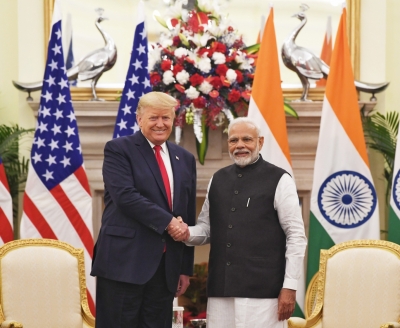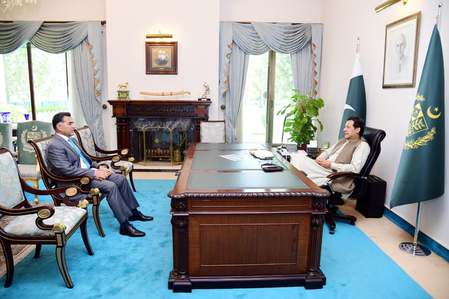
Islamabad, Oct 10 (IANS) Pakistan, under its Army Chief Asim Munir, has institutionalised a policy of exporting fear through which journalists are killed or silenced, party workers harassed abroad, families punished at home, and generals issue threats overseas with impunity, a report has cited.
It added that what started as censorship of domestic journalists has evolved into a system of transnational repression targeting entire political movements.
According to the report in European Times, Pakistan’s turn towards transnational repression has intensified under Munir due to the absolute power he has consolidated.
“In the last three years, since Munir became Army Chief, the state’s coercive arm has extended well beyond Pakistan’s borders, targeting journalists, activists, and increasingly, political opponents in the diaspora. What once seemed unthinkable, Pakistani authorities reaching into different countries to intimidate citizens has now become routine. The message is clear: criticism of the army, whether from Karachi or New York, will not be tolerated, and retribution can follow anywhere,” the report detailed.
It stressed that the most visible casualties of this strategy are journalists, whose cases highlight the scope of Pakistan’s transnational reach. In October 2022, the report said, Pakistani senior television anchor Arshad Sharif, who had fled sedition charges and military threats, was gunned down in Kenya. Although Kenyan courts later ruled his killing unlawful, justice remained elusive, with doubts over the Pakistani military’s involvement lingering.
“In March 2025, investigative reporter Ahmad Noorani published a report exposing Munir’s expanding influence; within days, his brothers in Islamabad were abducted, and a colleague in Balochistan disappeared. Soon after, his YouTube channel was blocked in Pakistan as part of a cybercrime investigation. These cases were condemned internationally as examples of extraterritorial repression. They represent the bluntest signal that even the dissent abroad is no safer than dissent inside Pakistan,” the report stated.
However, the report said, what began with targeting journalists has aggressively spread to political workers, especially those affiliated with Imran Khan and the Pakistan Tehreek-e-Insaf (PTI).
“In 2025, PTI demonstrations outside Pakistani embassies in London, Toronto, and Washington were met not only with local police pressure but with clear surveillance by embassy staff and private actors linked to Pakistani intelligence. Protesters reported receiving threatening phone calls, and their families in Pakistan were questioned by security agencies,” it added.
The report asserted that human rights organisations have increasingly raised concerns over Pakistani state-backed repression. The US-based advocacy group Committee to Protect Journalists described the 2025 cases against exiled reporters as “a severe escalation in Pakistan’s crackdown.”
“Pakistan has slid into a state where dissent is impossible both inside and outside its borders. The future for Pakistan is in shambles, where the military’s shadow follows citizens everywhere and the right to speak is extinguished at home and abroad alike,” the report noted.
–IANS
scor/as




